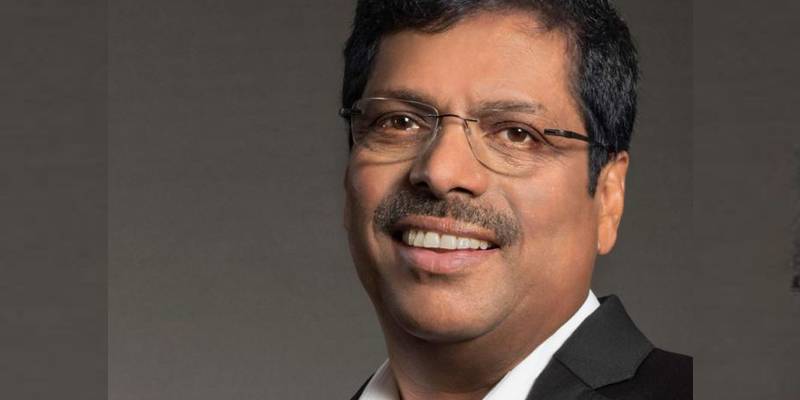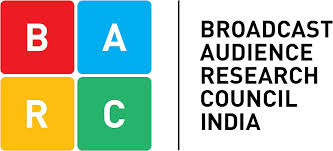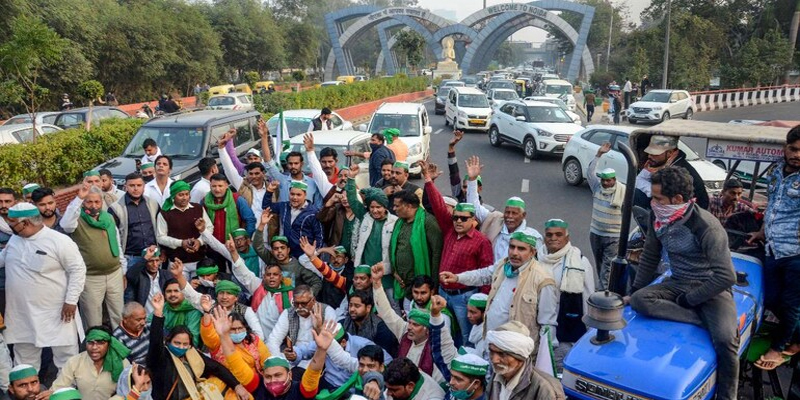Our Correspondent
K. Madhavan, the new chief of Indian Broadcasting Foundation (IBF), in an interview with exchange4media, discussed about a stable regulatory system for the industry, BARC, ad cap controversy and his plans for future of IBF.
The broadcasting industry faced back to back disruptions like never before in last four years. Starting from demonetisation in 2016 to GST in 2017 followed by a long legal battle against the first tariff order, the last few decades had been quite eventful, K. Madhavan said in the interview published in Impact, a weekly advertising, media and marketing news magazine.
“When the sector finally made peace with the first order called NTO 1 and decided to implement it, in comes NTO 2.0 followed by COVID 19. There was so much to tackle while keeping the pace and the morale of the industry going,” he said. In the interview Mr. Madhavan, who is Star & Disney India’s Managing Director, stressed the necessity for a stable regulatory system in the industry.
He also spoke about the need for having a separate regulator for telecom and media industry, his belief in BARC’s efficiency, his views on ad cap controversy, the impact of the growth of OTTs on the television industry, deteriorating quality of content on TV and his other plans as IBF president. Below are edited excerpts.
 Mr. Madhavan said that despite the many hurdles, the broadcasting sector rose to the occasion to engage and entertain millions of viewers while they were homebound. Notably, the sector performed the important role of keeping the audiences engaged while they remained indoors due to COVID-19, despite a sharp fall in revenue from advertisements and the challenges around the production of content.
Mr. Madhavan said that despite the many hurdles, the broadcasting sector rose to the occasion to engage and entertain millions of viewers while they were homebound. Notably, the sector performed the important role of keeping the audiences engaged while they remained indoors due to COVID-19, despite a sharp fall in revenue from advertisements and the challenges around the production of content.
The Indian Broadcasting Foundation also supported the cine-artists and workers during these testing times when production was put on hold. Importantly, the emotional and mental effect of this pandemic tends to be underappreciated as does the role that television content played in alleviating it.
On the other side, the industry faces a challenging regulatory environment that has handicapped us to create sustained value for all stakeholders involved. “The regulatory framework is also constantly changing with the introduction of NTO 2.0 even before the issues with NTO 1.0 had been resolved.”
 “Regulatory certainty is a must for any content producer or creator to feel comfortable with investing in the content ecosystem. Absent certainty, let alone basis, investment in content and therefore its quality/ quantity stand impacted with constant tweaking. The broadcast industry expects IBF to take up the issues facing the sector with both the policymakers and regulators and create a roadmap for the sector’s growth and act as a bridge for the stakeholders. We will do our best to bring the industry back on a growth trajectory,” he said
“Regulatory certainty is a must for any content producer or creator to feel comfortable with investing in the content ecosystem. Absent certainty, let alone basis, investment in content and therefore its quality/ quantity stand impacted with constant tweaking. The broadcast industry expects IBF to take up the issues facing the sector with both the policymakers and regulators and create a roadmap for the sector’s growth and act as a bridge for the stakeholders. We will do our best to bring the industry back on a growth trajectory,” he said
Saying that both telecom and broadcasting sectors are fundamentally different industry sectors, Mr. Madhavan said that both required separate expertise and lens to create the required sector-specific distinct frameworks. “Media and its guaranteed freedom are at the core of the broadcast sector, a factor not directly relevant in telecom.”
“Having a separate regulator for both who can work closely with the respective sectors to enable a conducive environment for all the stakeholders is the need of the hour. We need regulations to be stable and light-touch to grow the sector sustainably and attract investment for the creation and dissemination of quality content,” the leading broadcaster said.
“We have been in regular touch with the regulator before, during and even after the process of framing of regulations. However, unfortunately, the outcome of such engagements on some important issues for the broadcasting sector has not produced the desired result. As an industry body, we will continue to engage with both the regulator and the Ministry to address broadcasters’ concerns and suggestions,” he said.
“We are continually working towards finding ways to strengthen our relationship with TRAI and the Ministry of Information and Broadcasting. I’m confident that our efforts will bring the desired results to help the sector regain its growth trajectory.”
Speaking about upgrading the infrastructure for more accurate ratings he said that BARC ratings play a crucial role, both for large and small broadcasters as well as for advertisers. “We continue to support BARC in their endeavour to enhance their systems. In a country with 200 million C&S households, increasing the sample size for the BARC TV panel would always be helpful.”
Mr. Madhavan said that he was keen for IBF to proactively work and collaborate with the Ministry of Information and Broadcasting and the Telecom Regulatory Authority of India and nodal authorities to tackle issues facing the broadcasting sector with a view to unlock its real potential and create a framework that is focussed on growth.
“Our pursuit is to also follow through on our long-standing request for granting infrastructure status to broadcasting. Lastly, we continue to work closely with the Ministry to implement the Hon’ble Prime Minister’s core principle of ‘Ease of Doing Business’ in the broadcasting sector by creating a conducive environment.”
Asked about the IBF stand on NTO 2, the IBF chief said the organisation’s attempt will always remain to engage with the regulator in a collaborative manner. IBF as well as several other constituents of the broadcasting ecosystem have challenged the NTO framework. The hearing before the Bombay High Court has concluded recently and judgment is awaited.
 Speaking on the issue of cap on advertisements, Mr. Madhvan said advertising remains the mainstay of revenue for broadcasters who are already in distress from several extrinsic challenges, including the current economic slowdown. “Fundamentally speaking, any consumer subjected to excess advertising is likely to make an informed choice – therefore a natural tension already exists which acts as a check and balance.”
Speaking on the issue of cap on advertisements, Mr. Madhvan said advertising remains the mainstay of revenue for broadcasters who are already in distress from several extrinsic challenges, including the current economic slowdown. “Fundamentally speaking, any consumer subjected to excess advertising is likely to make an informed choice – therefore a natural tension already exists which acts as a check and balance.”
On the regulation on the kind of content being show in TVs he said that the IBF was a firm believer that the freedom of speech and expression should be exercised responsibly with due regard to constitutional limitations. He said that assuming that the quality of content has deteriorated over time, it must be borne in mind that the more content creators are forced to depend on advertising revenues, the more the business model would be naturally incentivised to seek out the lowest common denominator.
As a consequence, there is no incentive for creating educational, socially relevant content. He said that Broadcasting Content Complaints Council (BCCC) set up in 2011 has established itself as a credible institution vis-à-vis content shown on non-news and current affairs channels. This has been acknowledged by the executive, judiciary and the larger television viewing audience.
As the real stakeholders are involved in resolving complaints it provides a balanced safeguard against impinging on creative freedom. The BCCC guidelines encourage creativity in line with the evolving social milieu and standards. “We are hoping to further strengthen the self-regulatory mechanism and to make it more robust, by encouraging the Ministry to give statutory recognition to the self-regulatory guidelines of BCCC as part of the ‘Programme Code’ in the Cable TV rules, in a similar manner as has been done in the case of ASCI’s Advertising Code,” he said.
 Speaking about the OTT platform, he said that countries across the globe have seen a shift from television to OTT. These markets, he said already had a very high television penetration, and the economics encouraged customers to shift. In India, television still has plenty of room to grow, and many households are subscribing to both. He believed that in the end, the quality of the content will matter, regardless of the platform it is on.
Speaking about the OTT platform, he said that countries across the globe have seen a shift from television to OTT. These markets, he said already had a very high television penetration, and the economics encouraged customers to shift. In India, television still has plenty of room to grow, and many households are subscribing to both. He believed that in the end, the quality of the content will matter, regardless of the platform it is on.
He called upon the MIB and TRAI to ease licensing and regulatory burden on the broadcasting sector so that they can compete with digital platforms and thus giving most optimum choice to the end consumers.
Mr. Madhavan refused to comment on the BARC rating racking saying that there were a lot of developing elements in that story. He however said that the IBF will continue to support BARC’s rating system.
































